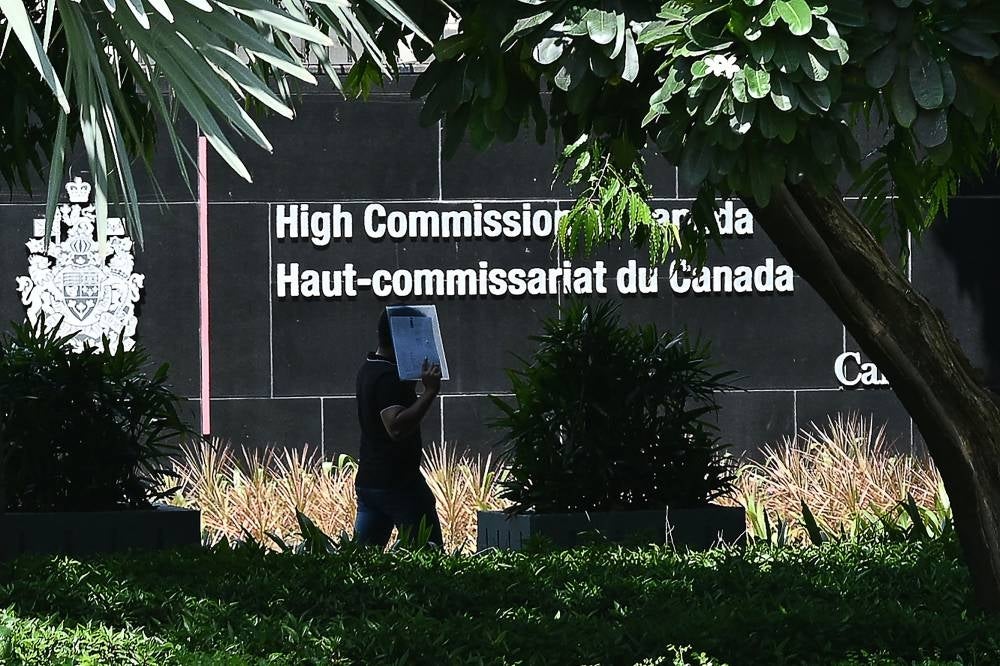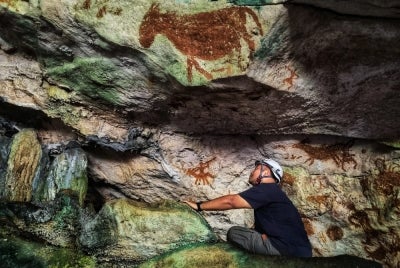Canada stressed need for 'strong diplomatic footprint' as India wants Canadian diplomats out

NEW DELHI - Canada on Tuesday stressed the need for having a strong diplomatic presence in India after reports emerged that the Indian government wants to drastically reduce the number of Canadian diplomats on its soil.
The reported Indian move comes as Canada-India tensions continue over the assassination of a Sikh activist by alleged Indian agents in a Vancouver suburb.
New Delhi has told Ottawa that it must repatriate 41 of its 62 diplomats by Oct 10 or their diplomatic immunity will be revoked, according to media reports.
Canadian Foreign Minister Melanie Joly said her government is in discussions with India in this regard.
"In moments of tensions, because indeed there are tensions between both our governments, more than ever it's important that diplomats be on the ground,” Joly said on Tuesday.
"That's why we believe in the importance of having a strong diplomatic footprint in India. That being said, we are in ongoing talks with the Indian government,” she added.
The dispute rages over the murder of separatist leader Hardeep Singh Nijjar, who was a Canadian citizen of Indian origin.
The 45-year-old supporter of the Khalistan movement, wanted in India on terrorism charges, was gunned down in June outside a gurdwara in Surrey in the province of British Columbia.
Canadian Prime Minister Justin Trudeau's accusation last month that Indian government agents may have been involved in Nijjar's assassination led to the current diplomatic crisis.
India last month expelled a senior Canadian diplomat in retaliation for Canada's expulsion of an Indian diplomat, identified as the local station chief of the India foreign intelligence agency Research and Analysis Wing (RAW).
The Indian government has also suspended issuing visas for Canadian citizens.
The issue of Khalistan supporters in Canada has been a source of irritation between the two countries for years.
Canada is home to about 1.5 million people of Indian ethnic or cultural origin and more than 770,000 of them identify themselves with Sikhism, a monotheistic faith followed by the majority in the north Indian state of Punjab.
Britain, the United States, and Australia also have significant Sikh diaspora populations.
According to official Indian figures, more than 178,000 non-resident Indians (NRIs), or Indian nationals who are residents abroad, are also based in Canada.
The strain in bilateral relations is being felt across communities both in India and Canada.
The Khalistan movement for a Sikh homeland, which peaked in Punjab in the 1980s, was crushed by Indian security forces, albeit at a huge cost in human lives.
Prime minister at that time Indira Gandhi was assassinated by her two Sikh bodyguards in 1984 in revenge for the military assault on the separatists in the Golden Temple in Amritsar that year. Her killing sparked an orgy of violence against the Sikh community in various parts of India.
While the Indian government seeks harsh measures against what it calls extremists and terrorists in Canada, Trudeau has countered such demands by citing democratic values, free speech and the rule of law.
These issues figured in a frosty meeting between Indian Prime Minister Narendra Modi and Trudeau when the Canadian premier visited New Delhi last month to attend the G20 summit.
Trudeau later informed the Canadian parliament that he raised the issue of Nijjar killing directly with Modi "in no uncertain terms”.
He said Canadian security agencies have been pursuing "credible allegations of a potential link between agents of the government of India and the killing" and asked New Delhi to cooperate in the investigation.
India has dismissed the allegations as "absurd and motivated”.
On Tuesday, Trudeau said relations between Canada and India are "going through an extremely challenging time” and it is "important for us to have diplomats on the ground working with the Indian government there to support Canadians and Canadian families”.
The Indian Ministry of External Affairs said last month it informed the Canadian government that "there should be parity in strength and rank equivalence in our mutual diplomatic presence" and that Canadian diplomatic strength in India is "very much higher than ours in Canada”.
Western response to Trudeau's allegations against India has been muted even though leaks in the US and Canadian media have pointed out that the information on the Nijjar killing was shared with Ottawa by the "Five Eyes” intelligence-exchange network comprising Australia, Britain, Canada, New Zealand, and the US.
Senior American officials have repeatedly urged India to cooperate with the Canadian investigation, saying the US takes the allegations seriously. - BERNAMA
Download Sinar Daily application.Click Here!














